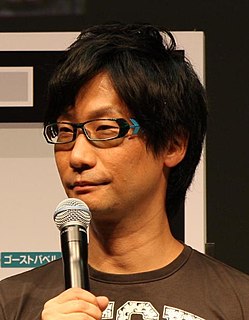A Quote by Laini Taylor
There is the past, and there is the future. The present is never more than the single second dividing one from the other. We live poised on that second as it's hurtling forward-toward what?
Related Quotes
Let each of us examine his thoughts; he will find them wholly concerned with the past or the future. We almost never think of the present, and if we do think of it, it is only to see what light is throws on our plans for the future. The present is never our end. The past and the present are our means, the future alone our end. Thus we never actually live, but hope to live, and since we are always planning how to be happy, it is inevitable that we should never be so.
In the spiritual world there are no time divisions such as the past, present and future; for they have contracted themselves into a single moment of the present where life quivers in its true sense. The past and the future are both rolled up in this present moment of illumination, and this present moment is not something standing still with all its contents, for it ceaselessly moves on.
I have a way to photograph. You work with space, you have a camera, you have a frame, and then a fraction of a second. It's very instinctive. What you do is a fraction of a second, it's there and it's not there. But in this fraction of a second comes your past, comes your future, comes your relation with people, comes your ideology, comes your hate, comes your love - all together in this fraction of a second, it materializes there.
Contemporary Christianity, diverse and complex as we find it, actually may show more unanimity than the Christian churches of the first and second centuries. For nearly all Christians since that time, Catholics, Protestants, or Orthodox, have shared three basic premises. First, they accept the canon of the New Testament; second, they confess the apostolic creed; and third, they affirm specific forms of church institution. But every one of these - the canon of Scripture, the creed, and the institutional structure - emerged in its present form only toward the end of the second century.
You and I are standing this very second at the meeting place of two eternities: the vast past that has endured forever, and the future that is plunging on to the last syllable of recorded time. We can't possible live in either of those eternities - no, not even for a split second. But, by trying to do so, we can wreck both our bodies and our minds. So let's be content to live the only time we can possible live: from now until bedtime.
We ought to remember the past, yes -- but we shouldn't allow it to consume us. We live in the present moment, and some people are too tied to the ideals of that period to fully move forward. We'll never work through the future unless we accept the present. We must fill the twenty-first century with dreams.
Marriage is an effort to legalize love. It is out of fear. It is thinking about the future, about the tomorrows. Man always thinks of the past and the future, and because of this constant thinking about past and future, he destroys the present. And the present is the only reality there is. One has to live in the present. The past has to die and has to be allowed to die.


































